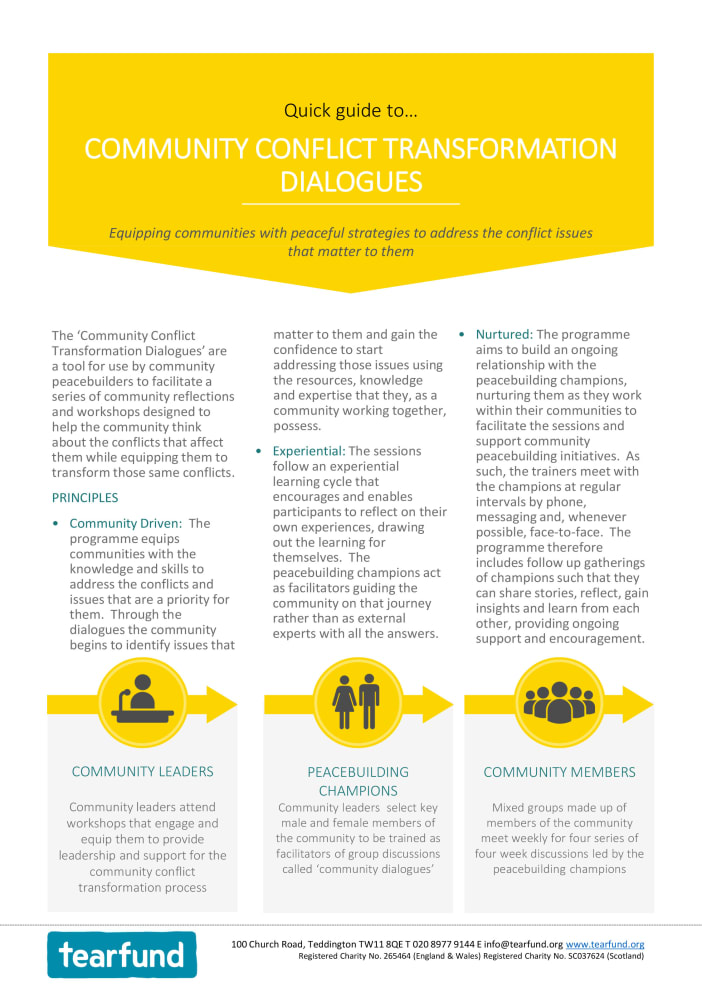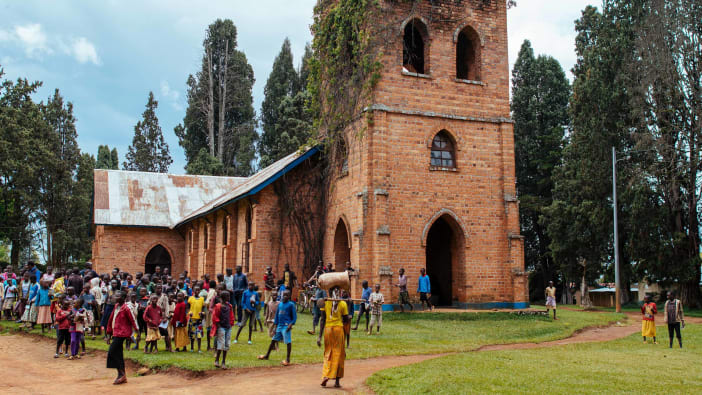The aim of this book is to encourage and inspire organisations to see the value of development which is conflict-sensitive – incorporating peace-building into whatever kind of development work we do. The learning points from partner experience are as useful for organisations wishing to be conflict-sensitive as they are for those in a situation requiring conflict-focused work.
The book first looks at conflict and reconciliation theory and gives the biblical basis for involvement in peacebuilding. It then outlines learning points from Tearfund partner experience that should be considered when encouraging peace and reconciliation. It also contains many practical ideas for peace and reconciliation initiatives.










